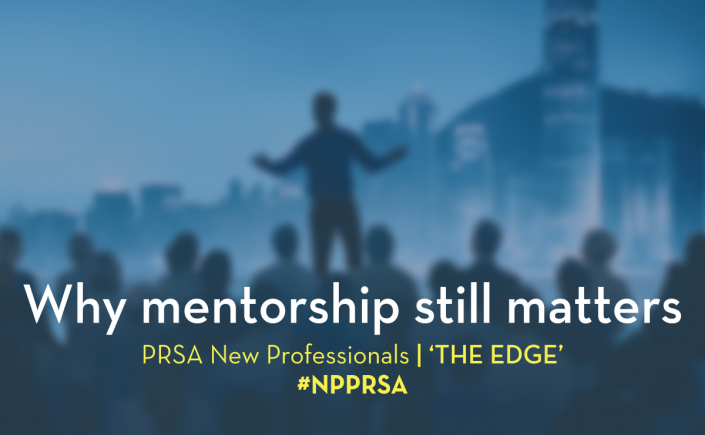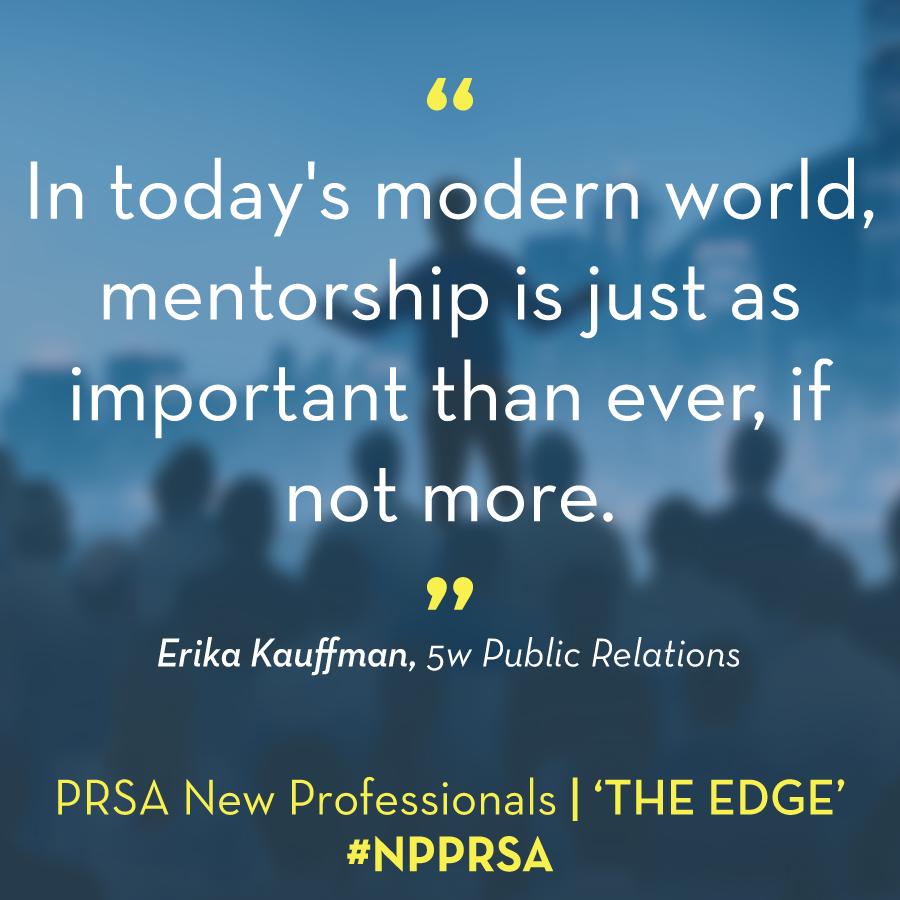Many young professionals are not aware of the importance of mentorship to their career advancement. In fact, the concept of mentorship has been around since the concept of a workplace has existed, it’s just that it wasn’t always called that. Centuries ago, this practice was most commonly referred to as an apprenticeship. Apprentices learned to become goldsmiths, bakers, farmers and metal workers through this practice. They depended on the maturity, experience and wisdom of their teachers to gain the skills they needed to become masters of the trade themselves. It’s only in recent history that this method of learning has been called mentorship.
In today’s modern world, mentorship is just as important than ever, if not more. The reason for this is the complex, fast paced and sometimes overwhelming business world we live in. It’s almost impossible to build a solid career and advance in it without learning to apply business practices and recent technologies that would have baffled the mind as recently as a couple of decades ago.
Mentorship not only benefits the protege, but the mentor as well. While the mentee learns valuable skills and techniques, the mentor can take note of the methods of training that have been proven to work just by observing the progress being made by his or her mentee. This mentor can then pass this on to other mentors, and if careful records are taken, newer and even more efficient methods of training can be established and passed on to other established and would-be mentors. This spells progress for both mentors and mentees.
How Mentorship Leads to Career Advancement. The benefits of mentorship to career advancement cannot be overstated (Click to Tweet!). Young professionals that receive mentoring advance in their careers much faster than those who don’t. There are good reasons for this.
Emotional & Psychological Support. Surely, it’s understandable that when young aspiring professionals enter into a field of expertise there can be stress and anxiety associated with it. When a mentor is available for guidance, the mentee can experience the inner stability of knowing he or she has someone to advise them during times of doubt, frustration and nervousness. When we as human beings are calm and focused, our creativity, perseverance and thinking processes are at their best.
Faster Learning Process. Young professionals that have mentors they can count on do not need to count solely on the knowledge they have learned while in college or other training facilities. They have at their disposal established professionals in their chosen field who have the experience and knowledge they need to quickly advance. This is not to say that the formal training they have received at institutions is not important, because it is. It’s just that nothing can compare with the real-world experiences their mentors already have. Those that have mentors are usually higher achievers, earn more promotions and see more frequent and higher salary increases than those who don’t.
Job Socialization. Although new professionals have been trained through formal educational institutions, internships and other educational involvements, they still have a lot to learn about the organization they are entering into. Having the basic skills to do their appointed job properly is not enough. They need to develop ways to adjust to and fit in with their new professional environment in order to thrive in it.
Importance of Choosing the Right Mentor. Clear communication is crucial for a mentee and mentor relationship to be successful. When a potential mentee considers a potential mentor, they should first make it clear what they hope to gain from this relationship. A clear set of goals should be clearly defined by the mentee. This will start the process of establishing the right mentor and mentee match. If it’s a good match, the mentor will have a lot to offer to help the mentee reach their career goals.
 Erika Kauffman is the General Manager & Executive Vice President at 5W Public Relations. With over a decade of experience in communications and management at 5W PR, Erika is an integral part of the firm’s leadership team and oversees a number of industry practices at the agency.
Erika Kauffman is the General Manager & Executive Vice President at 5W Public Relations. With over a decade of experience in communications and management at 5W PR, Erika is an integral part of the firm’s leadership team and oversees a number of industry practices at the agency.


